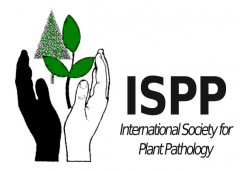
Plant viruses transmitted in two different modes produce differing effects on small RNA-mediated processes in their aphid vector
Phytobiomes
2019Authors: Patricia V Pinheiro Jennifer R Wilson Yi Xu Yi Zheng Ana Rita Rebelo et al.
Transmission of plant viruses by aphids involves multi-trophic interactions among host plants, aphid vectors, and plant viruses. Here, we used small RNA (sRNA) sequencing to visualize the sRNA response of Myzus persicae to two plant viruses that M. persicae transmits in different modes: the nonpersistent Potato virus Y (PVY) versus the persistent Potato leafroll virus (PLRV). Aphids exposed to PLRV produced significantly less 22mers aligned to the aphid genome, and an abundance of 26-27mers, many of which were predicted to be piRNA. Additionally, expression of Buchnera aphidicola tRNA-derived sRNAs was influenced by PLRV and, to a lesser extent, PVY, suggesting that plant viruses alter the aphid-endosymbiont relationship. Finally, aphids exposed to PLRV-infected plants generated an abundance of unusually long sRNAs and a reduced number of 22mers against an aphid virus, Myzus persicae densovirus (MpDNV) and had higher MpDNV titer. Expression of the PLRV silencing suppressor P0 in plants recapitulated the increase in MpDNV titer in the absence of PLRV infection. Our results show that plant viruses transmitted in two different modes cause distinct effects on their vector with regards to post-transcriptional gene regulation, symbiosis with Buchnera, and the antiviral immune response of aphids to an aphid-infecting densovirus.
Back Downloads
pbiomes-10-18-0045-r.pdf (1 MB)




